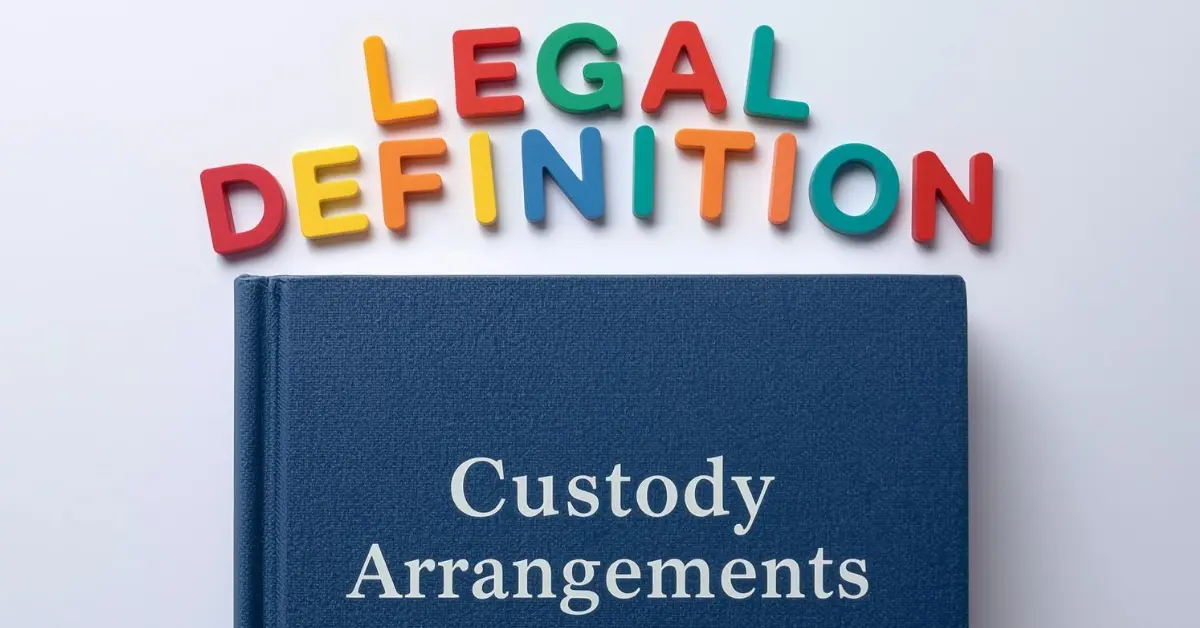Navigating child custody laws in North Carolina can feel overwhelming, especially if you are a mother seeking full custody of your child. Understanding the legal process is key to protecting your parental rights and ensuring the best possible outcome for your child.
There are several types of custody in North Carolina, including joint custody, physical custody, and legal custody.
Full custody means that one parent is awarded both physical and legal custody, giving them the authority to make major decisions about the child’s welfare and care without input from the other parent.
This article will guide you through the necessary steps to obtain full custody as a mother in North Carolina, providing clarity on the legal process.
Legal Framework for Custody in North Carolina
The foundation of North Carolina family law on child custody is based on the best interest of the child standard, a principle that ensures the child’s needs are prioritized.
According to N.C. Gen. Stat. § 50-13.2, the courts consider multiple factors when determining custody, including parental fitness, stability, and the child’s physical and emotional needs.
Key elements influencing custody decisions include:
- Parental stability: Consistent living arrangements and the ability to provide a secure home.
- Parental fitness: Evaluating a parent’s mental and emotional well-being, including any history of substance abuse or domestic violence.
- The child’s needs: Focusing on education, healthcare, and overall welfare.
These factors form the basis of custody rulings in North Carolina, with the child’s best interest as the central concern.
Steps to Seek Full Custody as a Mother
Gather Evidence
To succeed in your pursuit of full custody, it’s essential to present evidence that supports your claim as the primary caregiver. Some key pieces of evidence include:
- School records: Demonstrating your involvement in the child’s education.
- Medical history: Showing your role in maintaining the child’s health.
- Document reasons why full custody serves the child’s best interest, such as the need for a stable home environment.
File a Custody Petition
Filing a custody petition is the first formal step. In North Carolina, this is done by submitting Form AOC-CV-600 to the North Carolina courts.
You will need to provide specific documents and information about your role in the child’s life, as well as the reasons why you believe sole custody is appropriate.
Key documents required include:
- Custody complaint form
- Parenting plan (if already developed)
- Visitation schedule (proposed)
Attend Custody Mediation
In North Carolina, custody mediation is a mandatory step before going to court. During mediation, both parents work to reach an agreement about custody arrangements. If an agreement can’t be reached, the case proceeds to a hearing.
Proper preparation for mediation is crucial, and you should be ready to discuss your role in the child’s life and your vision for the parenting plan.
Preparing for Court: What to Expect
If mediation doesn’t result in an agreement, the case moves to court. As a mother seeking full custody, it’s essential to be well-prepared with the right evidence. The following categories of evidence will support your argument:
- Character witnesses: Individuals who can testify to your role as the primary caregiver.
- Documentation of your financial stability.
- Reports from a guardian ad litem, a court-appointed representative for the child.
During the custody hearing, both parties present their arguments, and the judge will decide based on the child’s best interest.
Factors That Can Influence Custody Decisions
Several factors can heavily influence the outcome of your custody case:
- Parental conduct
If the other parent has a history of substance abuse or domestic violence, this can play a significant role in your favor.
- Stability and living arrangements
A stable home is a critical factor for the court. Your ability to provide a safe and nurturing environment will strengthen your case.
- Co-parenting efforts
While seeking full custody, showing that you have made an effort to co-parent can positively impact the judge’s decision. In some cases, the child’s preference is also considered, depending on their age.
Challenges in Obtaining Full Custody
Winning full custody as a mother can be challenging due to several hurdles:
- Alienation
Courts frown upon any attempts to alienate the child from the other parent, and such actions can harm your case.
- Relationship with the child’s father
Maintaining a civil and cooperative relationship with the child’s father is crucial, as the court views co-parenting positively.
- Legal hurdles
Avoid common mistakes such as failing to follow court orders or neglecting to document your role in the child’s life.
Modifying an Existing Custody Agreement
Once a custody agreement is in place, circumstances can change, requiring a modification. To modify an existing custody agreement in North Carolina, you must show that there has been a substantial change in circumstances.
This might include changes in a parent’s living situation, financial stability, or the child’s needs. Filing for modification follows a similar process to the original custody filing, requiring documentation and court approval.
Visitation Rights and Full Custody
Even if you are awarded full custody, the non-custodial parent is usually granted visitation rights. In North Carolina, it is rare for a parent to be completely denied access to their child, barring serious concerns like abuse.
Typically, joint custody is more common, where both parents share physical and legal responsibilities.
Conclusion
Securing full custody as a mother in North Carolina requires careful planning, solid evidence, and an understanding of the legal process.
By focusing on your child’s best interest and presenting yourself as a stable and fit parent, you can strengthen your case.
Seeking the advice of a skilled family law attorney can provide additional guidance and support throughout this challenging process. If you are wondering how expensive is a child custody lawyer, consulting multiple professionals can help you find one that fits your needs and budget.
FAQs
Q: What Aspects of Custody Will the Court Take into Account?
A: The court looks at parental fitness, stability, the child’s needs, and any substance abuse or domestic violence history.
Q: Is the Lawyer Important to Seek Complete Custody?
A: While it is possible to file for custody without an attorney, having legal representation is highly recommended.
Q: How Long Does the Custody Process Take?
A: The process varies but generally takes about 60 days if uncontested. More complex cases may take longer.
Q: Can Custody Arrangements Be Modified?
A: Yes, if there is a significant change in circumstances, you can request a modification.
Q: In North Carolina, is it Possible for A Parent to Lose Custody Rights?
A: Yes, a parent can lose custody if there is evidence of abuse, neglect, or failure to fulfill parental responsibilities.
Contact Information
For legal assistance regarding child custody in North Carolina, contact Lehnhardt Price Family Law for expert advice on navigating custody disputes.





One Comment on “In North Carolina, How Can a Mother Obtain Full Custody of Her Child?”